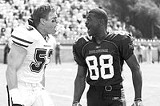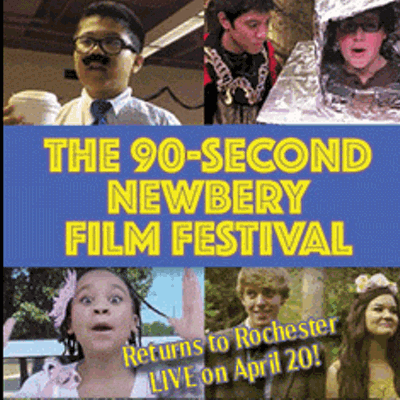[
{
"name": "500x250 Ad",
"insertPoint": "5",
"component": "15667920",
"parentWrapperClass": "",
"requiredCountToDisplay": "1"
}
]
Despite the arrant absurdity of starring the diminutive Adam Sandler as an actual professional football player, the makers (remakers) of The Longest Yard apparently perceived the wisdom in (and potential profit of) combining those blood cousins, the prison movie and the football movie. Both forms employ a large ensemble cast, rivaling the Hollywood platoon of the American war film, clothe the actors in uniforms, confine them to a severely restricted location, and then put them in violent motion.
The masculine domination of both forms --- except for the frank lubricity of such female prison classics as Caged Heat and Slammer Sluts --- attracts a certain desirable demographic and together with the necessary antagonism to established, official authority, so popular in our art and so rare in our society, the result practically guarantees box office success.
As in the 1974 original, the protagonist, Paul "Wrecking" Crewe, a former star NFL quarterback, lands in prison for a series of offenses that escalates from drunk driving through probation violation up to assaulting a police officer and resisting arrest. Although arrested in San Diego, he somehow ends up in a bleak penitentiary in the middle of a vast desert, where the guards systematically brutalize the inmates and the warden (James Cromwell) dreams of running for governor of the state, which of course is Texas. To enhance his political standing, the warden sponsors a semiprofessional football team staffed with guards, mostly metabolic freaks and ringers, and dragoons Crewe into lending his professional expertise to the program.
As expected, Crewe comes up with the idea of a game pitting the inmates against the guards, a scheme that provides the main action of the movie. The film spends a good deal of time on the often-comic business of Adam Sandler's various ploys to recruit players for the convict team. In addition to cajoling a number of reluctant inmates, holding out the possibility that they may finally retaliate against the cruel corrections officers, he must overcome some of the racial hostility that divides the prison population.
Most of all, he must deal with a notorious black mark on his own personal history, an accusation of point shaving in an important NFL game, which angers his fellow convicts more than anything else he does or says --- they don't care about whatever crimes he may have committed, but they are outraged at the un-American act of fixing a football game.
The rest of the movie proceeds in an entirely predictable manner, differing only in degree from the original. Burt Reynolds, who starred in the first flick, turns up as the grizzled con who played football in another lifetime --- the poor guy has been locked away forever --- and helps out with the coaching and even inserts himself into the climactic game for a key play. The team itself consists of the usual variety of misfits, nutballs, and psychopaths, some of them enormously overdeveloped and most of them enormously overacting.
Of course, as anyone would expect, the great game itself, which draws national attention in the form of the cameras and announcers of ESPN, provides a number of comic moments for the highlight reels. Players on both sides creatively and criminally savage their opponents (though the guards are dirtier, of course), a referee attempts to sway the contest until Sandler throws a few hard spirals to his groin, and of course, thanks to some trick plays and grit, the right side --- not the allegedly good guys, by the way --- wins.
While baseball occasionally appears in prison movies, as if to suggest the irony and sadness of playing so free a sport while immured in so static and confining an arena, football, for other reasons, seems a natural game for the form. The confining box with its rigid lines, the lack of individuality in performance, the game's required physical violence, its inherent tendency to incite rage all suit the regimentation, oppression, and brutality of incarceration.
Since the guards in The Longest Yard, preposterously muscular and blindingly blond, with Nazified uniforms, all look like Aryan poster boys for the SS, the movie also acknowledges a debt to the prison flicks of the past, like The Big House, I Am a Fugitive From a Chain Gang, and the great anti-Fascist classic, Brute Force. Ultimately, The Longest Yard may not belong with the great sports films, but it certainly reflects the heritage of the prison films, which are usually not funny at all.
The Longest Yard (PG-13) is playing at Brockport Strand, Canandaigua Theatres, Geneseo Theatres, Vintage Drive-In.
Latest in Movie Reviews
More by George Grella
-

Film Review: "Cake"
Jan 26, 2015 -

Film Review: "American Sniper"
Jan 19, 2015 -

Film Review: "Inherent Vice"
Jan 12, 2015 - More »





